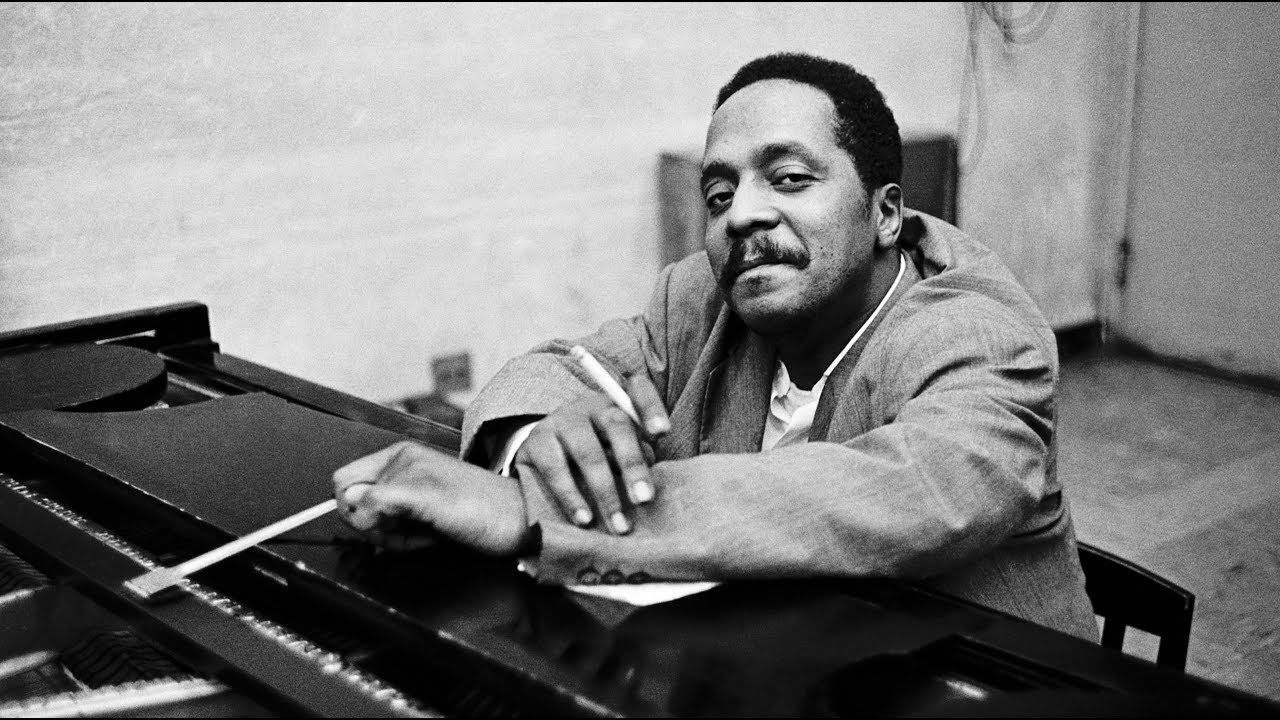Bud Powell
September 27, 1924 – July 31, 1866
| Instrument | piano |
| Birthplace | Harlem, NY |
Available Leadsheets
- Fool's Fancy - Kenny Dorham & Bud Powell Swing (medium up)
- Strictly Confidential - Kenny Dorham & Bud Powell Swing (medium)
- This Is Strictly Confidential - Kenny Dorham & Bud Powell & Lora Rosner Swing (medium)

One of the giants of jazz piano, Earl "Bud" Powell set the standard for bebop on his instrument. Focusing on linear right-hand melody, with rhythmic punctuations of chords in the left hand rather than steady time-keeping comping, as a soloist he essentially adapted Charlie Parker’s vocabulary to the piano (although he developed parallel to “Bird”). Powell was also a prolific composer, and many of his songs have become jazz standards, such as Bouncing With Bud, Celia, Dance Of The Infidels, Hallucinations, and Oblivion.
After being encouraged and tutored to an extent by his friend Thelonious Monk at jam sessions in the early ’40s, Powell was with Cootie Williams’ orchestra during 1943-1945. He made his first recordings with Williams; over the next few years, he recorded with Frank Socolow, Dexter Gordon, J.J. Johnson, Sarah Vaughan, Kenny Dorham, Sonny Stitt and Charlie Parker. His debut session as a leader was recorded in 1949 and includes four original compositions including Tempus Fugit, often considered his masterpiece, and Strictly Confidential co-written with Dorham.
In a racial incident, he was beaten on the head by police; Powell never fully recovered and would suffer from bad headaches and mental breakdowns throughout the remainder of his life. Even early on, his erratic behavior resulted in lost opportunities, but Powell’s playing during this period was often miraculous. A breakdown in 1951 and hospitalization that resulted in electroshock treatments weakened him, but Powell was still capable of playing at his best now and then, most notably at the 1953 Massey Hall concert with Charlie Parker and Dizzy Gillespie's quintet. He recorded as a leader on several labels through the '50s, with some of his best work in this period being his four Blue Note sessions. His warm welcome and lengthy stay in Paris (1959-1964) extended his life a bit, but even here Powell spent part of 1962-1963 in the hospital. He returned to New York in 1964, disappeared after a few concerts, and did not live through 1966.
In later years, Bud Powell’s recordings and performances could be so intense as to be scary, but other times he sounded quite sad. However, his influence on jazz (particularly up until the rise of McCoy Tyner and Bill Evans in the 1960s) was very strong and he remains one of the greatest jazz pianists of all time.
